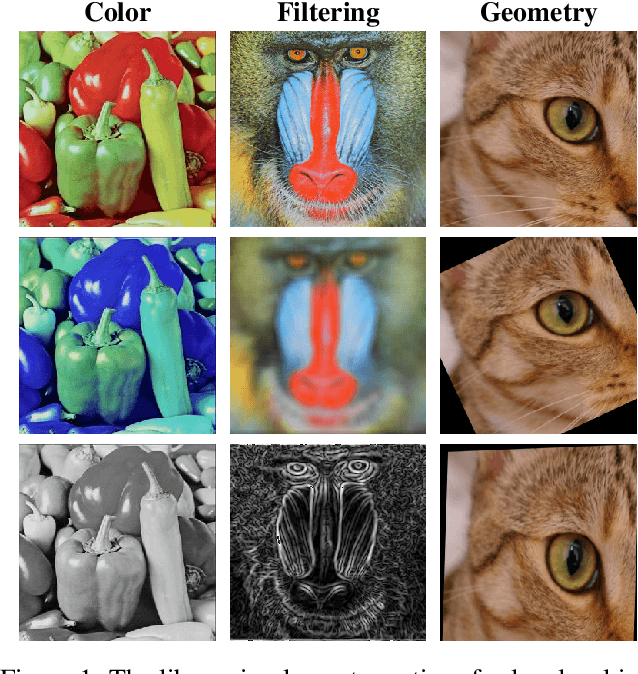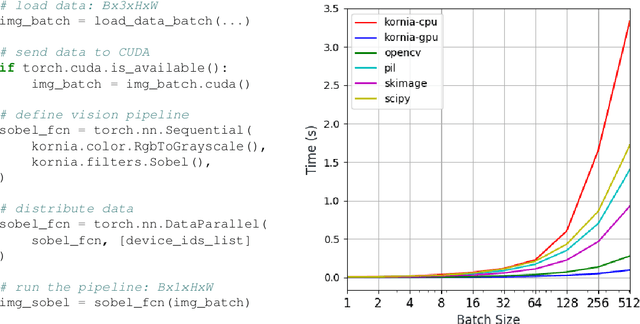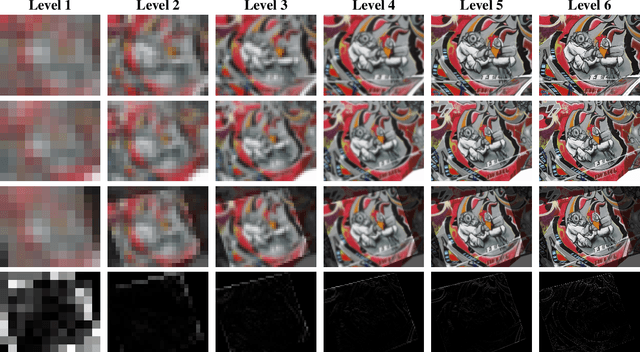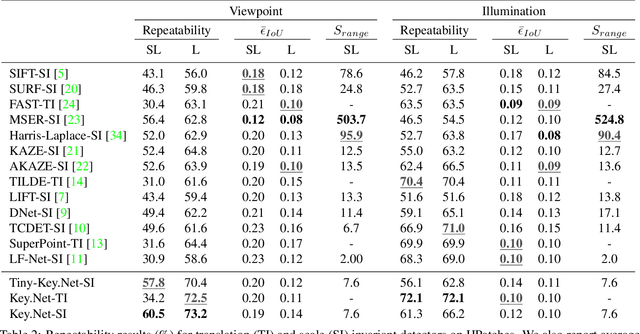Daniel Ponsa
Kornia: an Open Source Differentiable Computer Vision Library for PyTorch
Oct 09, 2019



Abstract:This work presents Kornia -- an open source computer vision library which consists of a set of differentiable routines and modules to solve generic computer vision problems. The package uses PyTorch as its main backend both for efficiency and to take advantage of the reverse-mode auto-differentiation to define and compute the gradient of complex functions. Inspired by OpenCV, Kornia is composed of a set of modules containing operators that can be inserted inside neural networks to train models to perform image transformations, camera calibration, epipolar geometry, and low level image processing techniques, such as filtering and edge detection that operate directly on high dimensional tensor representations. Examples of classical vision problems implemented using our framework are provided including a benchmark comparing to existing vision libraries.
Key.Net: Keypoint Detection by Handcrafted and Learned CNN Filters
Apr 02, 2019



Abstract:We introduce a novel approach for keypoint detection task that combines handcrafted and learned CNN filters within a shallow multi-scale architecture. Handcrafted filters provide anchor structures for learned filters, which localize, score and rank repeatable features. Scale-space representation is used within the network to extract keypoints at different levels. We design a loss function to detect robust features that exist across a range of scales and to maximize the repeatability score. Our Key.Net model is trained on data synthetically created from ImageNet and evaluated on HPatches benchmark. Results show that our approach outperforms state-of-the-art detectors in terms of repeatability, matching performance and complexity.
 Add to Chrome
Add to Chrome Add to Firefox
Add to Firefox Add to Edge
Add to Edge